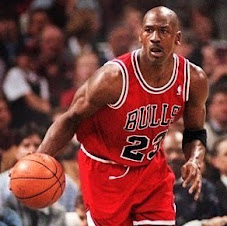
Good for Mo'Nique, but let's see strong mothers on film.
By Mary Mitchell, The Chicago Sun-Times
March 9, 2010
Whenever I want to make sure I don't spend the evening alone, I make jambalaya.
I make a darn good pot of jambalaya.
Nearly 20 years ago, I picked up a cookbook in New Orleans and I've been cooking cajun every since.
So when the No. 2 son was in town visiting his brother, I knew the only way I was guaranteed to see them both was to stir up the jambalaya.
Besides, Sunday night was Oscar night. The award program has always been a guilty pleasure.
Growing up, I was like other girls across America. I fantasized about being up on that stage, clutching that gold-plated statue and giving an emotional acceptance speech.
What better night to have jambalaya.
This year, I partook of all the Oscar festivities, including watching the red carpet fashion show.
The best Oscar moment was when Geoffrey Fletcher won for Best Adapted Screenplay for "Precious."
"This is for everybody who works on a dream every day," he said, fighting back tears.
But I'd be lying if I said I was rooting for Mo'Nique to win an Oscar for her role in the movie.
"Precious" is based on the novel Push by Sapphire, which creates a sexual abuse victim that is a composite.
Reviewers had nothing put praise for Mo'Nique's brutal portrayal of the physically and sexually abusive mother.
Still, the character is an incredibly harsh stereotype of a poor black mother.
But it was the right choice for Mo'Nique.
Her career can only go up, and like other actors and actresses who have accepted controversial roles, she makes no apology for it.
"It can be about the performance and not about the politics,'' Mo'Nique said in thanking the Academy for the honor.
This was Mo'Nique's first dramatic role, and in her acceptance speech, she thanked Hattie McDaniel, the first black Oscar winner, for paving the way.
Obviously, Hollywood has come a long way since McDaniel won for playing Scarlett O'Hara's loyal slave in "Gone with the Wind."
But I can't recall the last time I've seen the kind of "strong black woman" that the late Coretta Scott King once described in a movie.
"Our heritage of suffering and our experience in having to struggle against all odds to raise our children gives us a greater capacity for understanding both suffering and the need and meaning of compassion, King said in 1971 interview with writer Alice Walker.
The interview is referenced in Fierce Angels, a recently released book written by Sheri Parks of the University of Maryland.
"We have . . . a kind of stamina, a determination which makes us strong," King said.
Mo'Nique's vile role was the direct opposite of Sandra Bullock's character in "The Blind Side."
Ironically, Bullock hasn't gotten much love from the Academy during her long career. But she won an Oscar for playing a mother who welcomed a homeless black teen into her home.
Any other year, I would have embraced this film.
But after "Precious," a film about a black teenager being left to fend for himself on the streets was too overwhelming.
Based on a true story, Bullock's role celebrated the humanity of the white mothers who have opened their doors to these broken kids.
And she acknowledged as much in her acceptance speech by thanking the "moms that take care of the babies and the children no matter where they come from."
"The Blind Side" is a biting reminder that too many black children do not have the love of either parent.
But it is not my idea of entertainment.
If this trend continues, I shudder to think what Hollywood comes out with next.
So this year's Oscar night was a little strained.
One thing made me happy, though.
By the time the Oscars signed off, the pot of jambalaya was empty.
This shrimp, chicken, and andouille sausage-laden rice meal has become a family favorite.
It is also my saving grace.
Cooking up a scrumptious meal, setting it on the table and watching my family enjoy it is still my way of showing them love.
Nothing against Mo'Nique or Bullock, but I wish Hollywood would produce more films about black people who do something other than abuse their children.



.jpg)






No comments:
Post a Comment